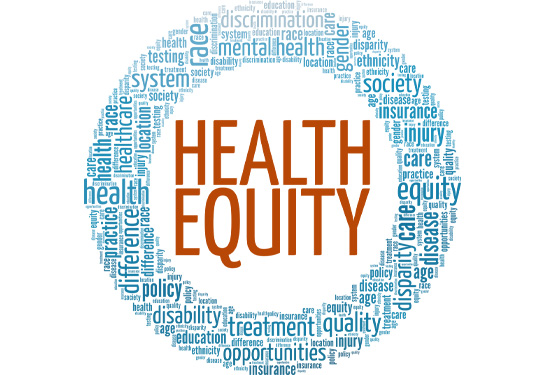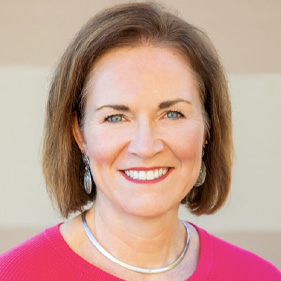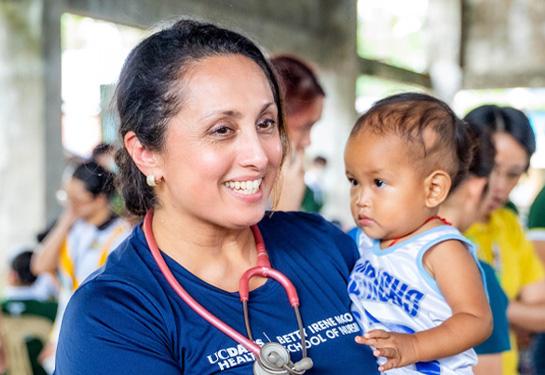UC Davis nursing professor awarded $1.25 million training grant
NIH funds support students’ research to improve health equity
UC Davis nursing professor Leigh Ann Simmons has received a $1.25 million grant from the National Institutes of Health to focus on health equity. The Ruth L. Kirschstein Institutional National Research Service Award is a training grant known as a T32. It is the first such award for the Betty Irene Moore School of Nursing at UC Davis.
The award will fund a training program titled “Research to Advance Connected and Community Health Equity (ReACH Equity).”. The goal is to train a new generation of scientists to use advanced, multidisciplinary, multi-level methods to improve health equity.
The T32 training program provides funded, structured and mentored time to prepare doctoral students for careers that have a significant impact on the health-related research needs of the nation.
A new report from the National Academies of Sciences, Engineering and Medicine found the U.S. has made little progress in advancing health care equity over the past two decades.
Advancing community health equity
Simmons’ goal for the five-year grant is to train 26 predoctoral fellows in the school’s Doctor of Philosophy (Ph.D.) in Nursing Science and Health-Care Leadership Degree Program.
“This is an incredible opportunity to train the next generation of nurse scientists in cutting-edge methods to advance health equity across all levels of influence — individual, family, clinic, community and policy,” Simmons said. “Consistent with the school’s commitment to diversity, equity and inclusion, the ReACH Equity program supports graduates in conducting transformative research that effects systems change that advances health equity across multiple settings and sectors.”
This is an incredible opportunity to train the next generation of nurse scientists in cutting-edge methods to advance health equity across all levels of influence – individual, family, clinic, community and policy.—Leigh Ann Simmons, School of Nursing professor
Simmons works alongside Courtney Lyles, director of the Center for Healthcare Policy and Research, who serves as one of the principal investigators on the grant. They aim to guide trainees in establishing the evidence base for improving health equity across the lifespan among historically and presently marginalized communities.
Applications for the first cohort of trainees are open now. Up to four candidates will be admitted annually. The initial appointment is for one year, with the expectation of renewal for a second year after review. The 2024-2025 inaugural group begins the program in October.
Mentorship and equity-focused health
Once admitted, trainees are matched to a primary mentorship team. Trainees learn through instruction and practice that will provide them with the core competencies and in-depth theoretical knowledge required for successful careers in health equity.
Simmons uses advances in equity-focused prevention science and population health to teach about the needs of marginalized communities.
“Mentoring students is one of the best parts of my job. Through this grant, I get to expand my mentoring capacity to more students while also working with more diverse colleagues across UC Davis’s two campuses. Leading a T32 is a dream come true,” Simmons explained.
Program focus mirrors school’s commitment
Research from the program will be shared back to communities, advocates and policymakers to effect and sustain change
“The grant aligns directly with the school's mission and vision of health equity for all, and with the primary research interests of so many of our students and faculty,” said Janice F. Bell, associate dean for research. “The grant further benefits the nursing profession through its commitment to rigorous training of equity-minded future faculty and independent researchers.”
The T32 budget covers stipends, tuition and fees, as well as training-related experiences.
Simmons leads the Perinatal Origins of Disparities Center (POD) at the School of Nursing. The center brings together behavioral science and technology research. The goal is to better understand — and ultimately intervene in — prenatal and early life factors that affect later life health. This is most especially true for specifically factors that are disproportionately present in disadvantaged communities.
The POD center's administrative home moved to the School of Nursing in November 2023, when Simmons became a tenured professor in the school.





